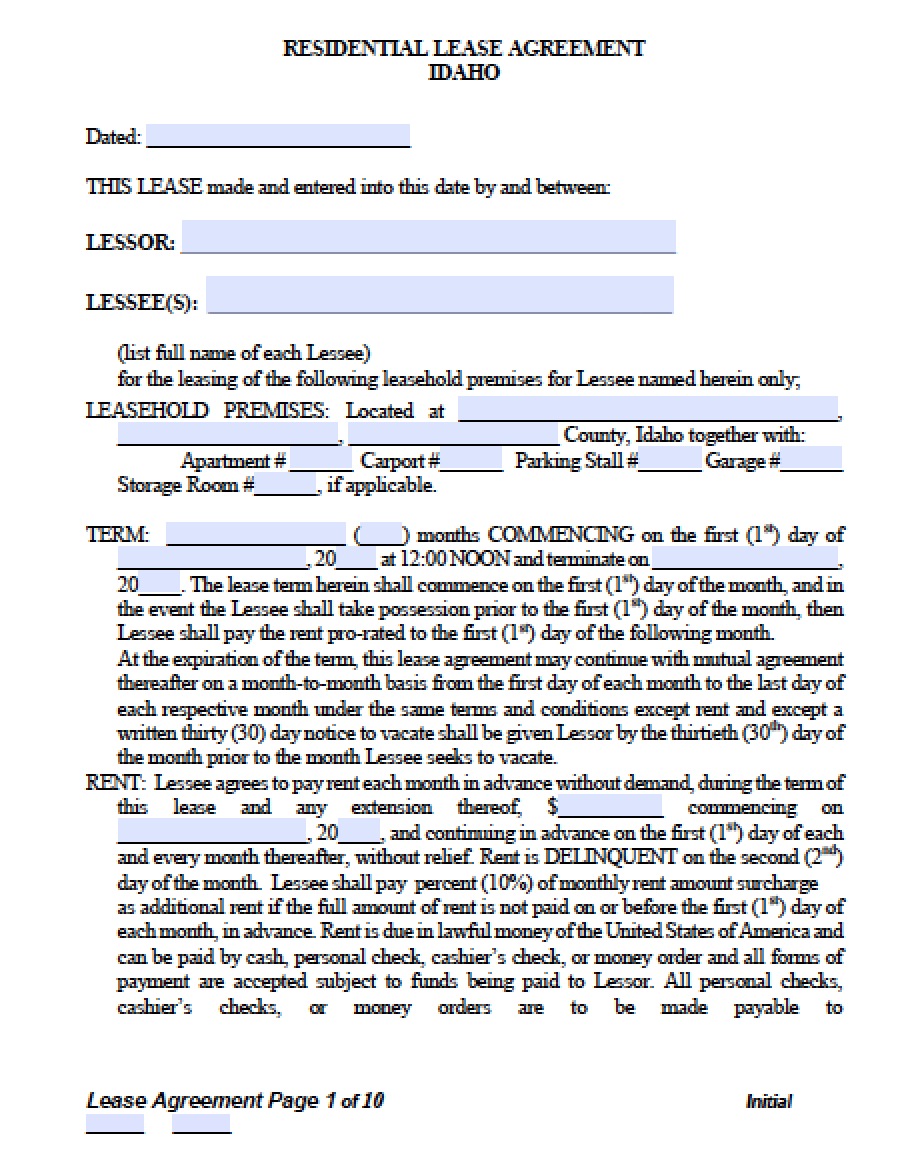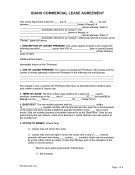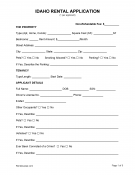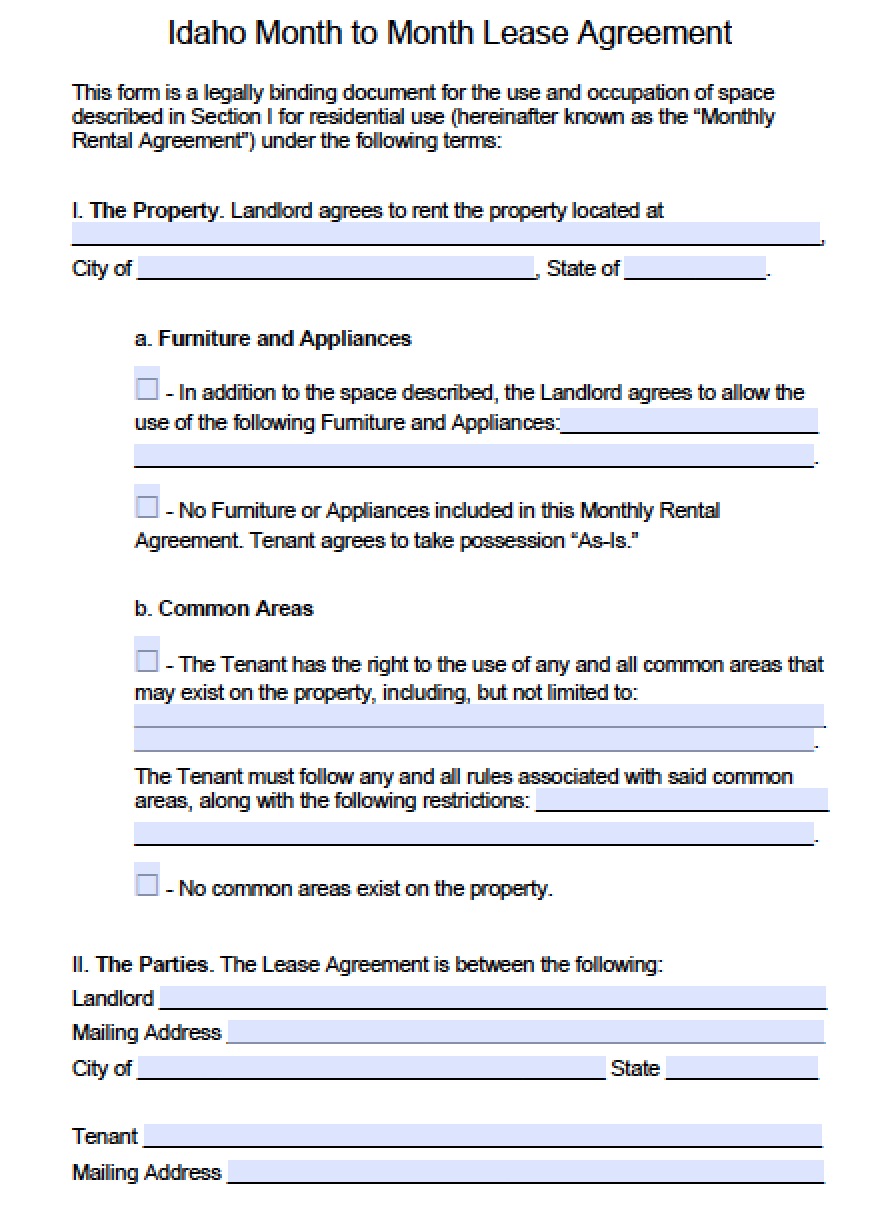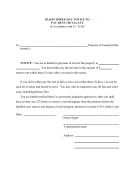Idaho rental lease agreements are contracts which allow a property owner to rent their property to a tenant. The most common type of lease, the standard residential contract is a twelve (12) month agreement that is used by property managers and owners to rent out residential properties. Tenants will often be required to complete a standard background and credit check to ensure that they are able to pay their monthly rent and have positive references in their rental history. Once the verification is complete, both parties can move forward and draft an agreement.
Idaho Rental Lease Agreement Templates | PDF
Idaho Lease Agreements
The Idaho residential lease agreement is designed for individuals who are looking for a standard, one (1) year lease agreement with monthly payments usually due on the first (1st) of every month. A rental contract like this can allow the landlord and tenant to agree on a set of terms and conditions and state who pays what in regards to property costs (i.e cable, electricity, heat, air-conditioning, etc.). It is highly advised that the landlord request the applying tenant to complete…
An Idaho commercial lease agreement is geared towards tenants seeking to occupy and pay for retail, office, or industrial space on a monthly basis. Like any lease agreement, the landlord can request the applying business owner to complete a rental application to verify the entity as well as the personal finances of the tenant. There are three (3) different types of commercial lease agreements in Idaho: Gross, Modified Gross, and Triple Net (NNN). A Gross commercial lease agreement requires that…
The Idaho rental application enables landlords to view the criminal (background), employment, rental, and credit history of their potential tenants. The property owner/manager may also ask the applying tenant to pay for the inquiry even if the landlord doesn’t accept the applying tenant into the property. Along with this verification, the landlord should ask for a security deposit (typically equivalent to one (1) month’s rent) for additional assurance. The security deposit should be able to cover any non-accidental or accidental…
An Idaho month-to-month lease agreement is the preferred situation for individuals with no predetermined end lease date, and it consists of a lease that renews at the end of every month. As with any lease agreement, it is recommended that the landlord request that a rental application be filled out by the tenant before they look into completing a lease agreement. Even though the tenant may only be staying at the property for a month, plenty of damage could still accrue,…
The Idaho three (3) day notice to quit grants a tenant up to three (3) days to pay any and all back-rent to the landlord or face eviction within thirty (30) days. The notice must be personally served upon the tenant or co-habitant with an additional copy sent to the address. Alternatively, the notice can be sent by mail with another copy posted in a conspicuous place on the property. When is Rent Due? (AG’s Guidelines) – As stated in the…
The Idaho sublease agreement can be used by the tenant on a property to permit another individual to live in or take over the property. This agreement works without any assistance from the landlord, although the landlord should be informed, and any problems with the sublease are to be directed at the original tenant (known as the “sublessor”). For example, if the new subtenant (called the “sublessee”) does not make payment with the monthly rent, the sublessor is required to…
To verify any and all laws within the State the parties should refer to the Landlord and Tenant Guidelines.
DISCLOSURES
Lead-Paint – Only required to be attached and signed if the building structure was completed before 1978.
SECURITY DEPOSITS
Maximum – None. A landlord may demand whatever they deem necessary
Returning (§ 6-321) – Twenty One (21) days if it is not stated in the lease. If a clause stating the return of the deposit does exist in the lease, it may only be up to thirty (30) days.
LANDLORD'S ACCESS/ENTRY
There is no State law requiring the landlord to give notice to the tenant prior to accessing the property. However, it is still highly advised that the landlord notify the tenant in some fashion.

